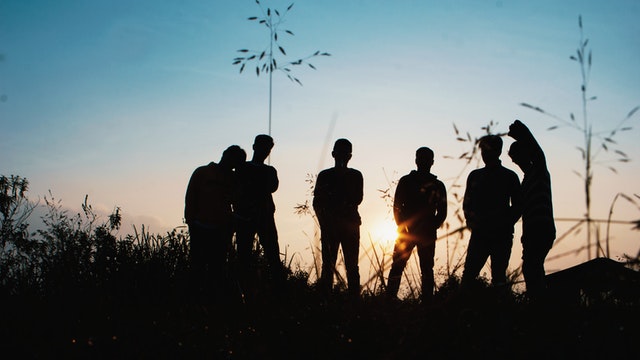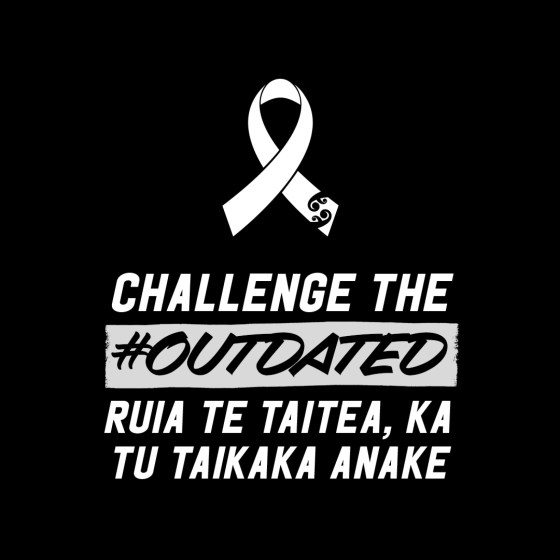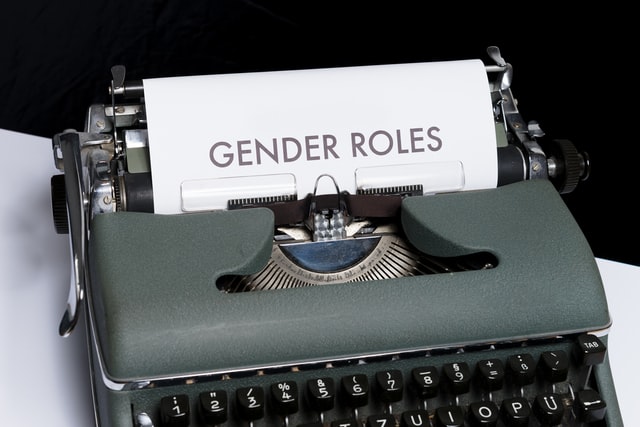New research on engaging boys and young men in sexual violence prevention
Mon 05 Jul 2021
New research asked boys and young men about online sexual harassment and sexualised abuse against girls and young women, and how to prevent it in Aotearoa New Zealand.

The research focussed on online communication between boys and girls and was “framed within a broader context of gender equality and ethics”. It finds that boys are "caught in a net of confusing messages about how to be men" but also how, “given the opportunity to discuss and unpick these messages, boys’ curiosity and good intentions can be supported in ways that potentially free them up to contribute to more ethical and egalitarian norms for behaviour."
The findings from the research are presented in a new report, Shifting the Line (2021).
The research drew on peer group workshops with 54 secondary school boys and young men in Tāmaki Makaurau Auckland, which were designed to get boys and young men to think about gender, equality and ethics. The workshops and research sought to explore new ways of approaching prevention of sexual harassment, violence and abuse, as well as other forms of gendered violence. In the report background, the researchers discussed challenges to effective approaches to engaging boys and men in gender equality and violence prevention writing:
"One key point of contention concerns the efficacy and the risks of approaches that deliberately mobilise masculinity as a strategy to engage men as allies. This approach in essence calls upon men to be good men, by drawing on traditionally masculine qualities such as strength and protectiveness to effectively ‘man up’ to stop violence. While male allies and partners are important in the movement toward gender equality and preventing gender based violence, the problem with such approaches is that they implicitly, and sometimes explicitly, hold in place stereotypes of masculinity that are part of the problem. At best, they only scratch the surface of the degree of change that is needed, and miss a key element of requiring men to reflect on their own gendered position and the way that it sits within hierarchies of gendered power and privilege, as well as those of ethnicity, socioeconomic status, sexuality, ability, and so on."
The report outlines the researchers' approach to change, how the workshops were developed and findings from the workshops with boys and young men. Findings are presented in four areas:
- Masculine norms and their production
- Norms, ethics, and sending nudes
- Onsharing nudes and the art of intervening
- Conversations towards shifting the line
Key findings include that social norms and concepts about masculinity and what it means to be a man can be limiting and narrow. The boys and young men in the workshops recognised these norms and the limitations it places on them, but the research also found that they have limited opportunities to talk about these issues or explore alternatives. Peer groups were identified as powerful influencers on behaviour, which could reinforce negative and abusive behaviour, or provide opportunities and influence positive change.
Based on the findings, the researchers argue that "effective strategies to promote positive change and ethical behaviour should seek to transform collective norms and action, rather than targeting individual behavioural change."
They also recommend that work on positive change should focus on encouraging boys and young men to be 'ethical people' writing:
"Given the unhelpful, and in some cases dangerous, cultural baggage that traditional gender roles carry, we suggest it would be better to inspire boys and young men to be ethical people rather than ‘good men’."
They recommend a first step could be examining how concepts of gender influence structures and impact on peoples' experiences and opportunities.
In their key findings, they highlight that:
"Some boys and young men are interested in talking about these issues – and it is possible to create spaces that build on their curiosity and their commitment to fairness and equality, allowing them to critically reflect on gender norms and develop insights and skills that enhance their readiness to contribute to positive social change."
They note that this is preliminary model that can be used and adapted to promote ethical online behaviour and contribute to gender equality and violence prevention, and they recommend further research. Their final key point highlights that "Supporting even small numbers of boys and men to work together to become change agents has the potential to spark ripples of change that can shift norms of ethical behaviour among peers in the wider cultural context."
Lead researcher and University of Auckland Professor Nicola Gavey said:
“Peer groups are powerful sites for shaping behaviour. As we saw in the case of Roastbusters and all the cases that keep showing up in the media of groups of boys harassing and exploiting girls, peer groups can be hot houses for sexism and gendered harassment and abuse.
“But when peer groups are open to more flexible gender norms and share values around equality and respect, they can also be a powerful site for positive change and supporting ethical behaviour.”
The research was carried out by Nicola Gavey, Octavia Calder-Dawe, Kris Taylor, Jade Le Grice (Ngāpuhi, Te Rarawa), Brandee Thorburn, Sam Manuela, Makarena Dudley (Te Rarawa, Te Aupōuri, Ngāti Kahu), Senuri Panditharatne, Riane Ross, Angela Carr and Robin Murphy.
More information about the research is available on the project website: www.shiftingtheline.ac.nz. There are plans to add the Workshop Guide, videos and other resources to the website.
Kris Taylor, one of the researchers, has been awarded an MBIE Science Whitinga Fellowship for research entitled: 'Boys Talk': Working with boys and young men towards the prevention of gender-based harassment and violence through a series of workshop interventions.
Related media
Calls for sexual consent education to be compulsory in NZ schools, Re:news, 07.03.2022
Consent education needs more than tea, The Spinoff, 02.08.2021
Students, teachers across NZ to be surveyed about sexual abuse and harassment, One News, 05.07.2021
Sexual harassment hits multi generations, with assaults also in primary schools, Stuff, 03.07.2021
Beneath the surface of sexual violence, Newsroom, 02.07.2021
Sexual consent education 'must be in every school', Marama Davidson says, One News, 30.06.2021
Students often stay silent after being sexually assaulted, survey finds, RNZ, 28.06.2021
Alison Mau: Rejecting the man-box will take some mahi from schools and parents, Stuff, 26.06.2021
Schools grappling with sex ed in changing world, Otago Daily Times, 26.06.2021
Sexual assault and fraud most under-reported crimes, new research shows, Stuff, 16.06.2021
'No means no': Christchurch students raise awareness about sexual violence, Stuff, 11.04.2021
Students pushing for better education around sex, consent and rape culture, Stuff, 08.04.2021
When Wellington took to the streets, The Spinoff, 07.04.2021
Students protesting sexual harassment turned back from boys' school by police, Stuff, 25.03.2021
Calls for funding increase for sexual assault prevention, RNZ, 05.04.2021
Image: Afta Putta Gunawan from Pexels







